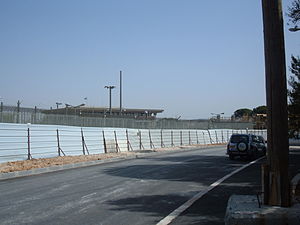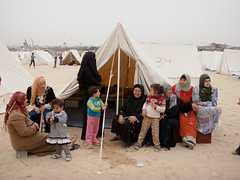Contrary to popular imagination, democratic schools have a whole lot of structure. Democracy is meaningless without decision-making, and democratic decision-making is impossible without structure. Democracy is in a constant struggle with arbitrariness, the force democracy originally arose to negate1. Codifying the ways decisions are made and the scope of the decisions can be a certain safety against arbitrariness. The creation of procedures and structures in a democracy allows a system to arise which, to a certain degree, runs on its own. Democracy still requires constant vigil in defense both of its structures and of its spirit (the concepts discussed in Part 1 of this series), but procedures allow the democratic community to agree on a certain course of action without the constant need to discuss how things are done – or the danger that arbitrary decisions will be made ad hoc, without clear direction from the community. Indeed, rules and regulations may seem imposing, even frightening, and some find them strange in places where such emphasis is placed on freedom, but still they are as necessary a component of democracy as are the meetings and votes that put these in place.
For a community to make decisions, the individuals that form the community have to know how decisions are made. They must know that certain kinds of decisions can only be made in a democratic meeting. They also have to know that the meeting takes place in a certain time, in a certain place, and in a certain way; if anyone can just throw together a meeting at any time, the meeting quickly loses its legitimacy.
A democracy creates procedures for everything. The more important or common an issue, the more detailed the procedures that cover it. These procedures tend to grow organically over time, growing to cover and fill every loophole and conflict as it comes up. After just four years of operation, for instance, Sudbury Jerusalem had a Lawbook almost 50 pages long, with no less than 8 pages devoted to the Judicial Committee (JC), the body that oversees the execution of School Law (or the consequences of failure to comply with it.)
These regulations serve to protect the individual – the community gives the Judicial Committee a lot of power, with huge potential to disrupt people’s lives and freedoms; the procedures governing JC’s decisions limit it and make it clear what it can and cannot do. The procedures also dictate precisely how decisions are made – they say in what way cases are handled, what steps are taken and in which order, and who must or may be present for every one of them. The tendency is to leave as little as possible up to the JC’s own discretion; JC is merely a servant of the system, individuals doing their duty (in rotation) to apply fair judgment to the cases brought before them. The meetings are structured – the procedures are set down in School Law, all that’s left to the Committee is to follow the rules, examine the cases, and produce decisions.
This system also supports an atmosphere of pleasant ease; visitors and newcomers are often surprised at how structured JC is, but also at how everyone seems very peaceful about it, even the accused. I found JC very pleasant and used to gladly sit by as an observer and watch cases when I had some free time. My guess is that it makes people comfortable to know that there are rules, that these rules work, and that all they have to do is simply follow them. Of course, in a Sudbury school the same people can also propose, amend or repeal the rules, making it easier to accept them2.
Interestingly, Sudbury Jerusalem’s central decision-maker – School Meeting (SM) – has never been quite as structured as the Judicial Committee. School Meeting is the only institution that existed in the school a priori, and perhaps for this reason, custom has had a far bigger role in SM than in the other institutions SM has created over the years. SM has always been run based on a modified, simplified version of Robert’s Rules of Order, although remarkably the rules have been passed down from one chair to another, rather than codified in rules or bylaws. Robert’s Rule necessitate a chair that runs meetings, makes note of members who want to talk and gives them the floor, as well as maintaining order by giving warnings to members who cause disturbance. So in this sense, it has always been run in a very structured way. But in comparison with the JC’s detailed procedures, SM seems somewhat unorganized. Tellingly, the same Lawbook with 8 pages about JC had just 3 pages devoted to SM.
Still, SM has a certain order in which things are done. For instance, second readings of proposals are handled before first readings, in order to make sure no flood of new proposals could push back the older proposals indefinitely, preventing the Meeting from ever making any final decision. But even such order as is maintained is seen more as tradition, or at least as more mutable, than the parallel order in JC. SM often decides to handle a certain matter out of turn because it is urgent. JC could never get away with rearranging the stages of its investigation.
The differences in the forms the procedures take in these two institutions reflects the different needs that they serve, as well as their different sources of legitimacy. School Meeting is the school community’s tool for democratic decision-making; it embodies the community and allows it to make decisions as a whole. Its legitimacy is direct – everyone who wants to take part is allowed to, the entire community controls it and agrees to accept its decisions because each and every one of them can affect these decisions. So changing the order in which decisions are made, although it sometimes has great effect on matters of importance, is something SM can do as it sees fit; there is no need for extra supervision or control because the decision is open to everyone. At the same time, a certain order is needed during meetings, to give each member a fair chance to speak and be heard; if everyone can speak whenever they want, the loudest will be the only ones heard, if any.
The Judicial Committee, on the other hand, is legitimized indirectly, by decision of School Meeting – it is one step removed from that direct legitimacy enjoyed by the authorized assembly where all can take part. The Committee has few members and one cannot simply come in and take part in the discussion. There are good reasons for this – the Committee is supposed to be efficient and fair – but it means that JC may sometimes be seen as a closed group. SM gives this group authority, but not unconditionally; there is a clear limit to what the Committee may decide, and clear procedures for exactly how it may be decided. In a sense, this is an assurance to the school community that SM is still in control, because its decisions about School Law determine the course that JC may take. In a way, this is the same in all school institutions and offices apart from School Meeting.
I hope this brief discussion provides some insight into the interaction between democracy and structure. In the coming three weeks I will be away, working, and when I return I will doubtless be swamped. But sooner or later, I will continue writing these posts about democracy.
1The Greek and Roman democracies of classic antiquity were instated after kings and tyrants were done away with, and designed to make the arbitrary authority of a king impossible. The authority previously held by the king was divided amongst multiple magistrates, serving in rotation, making it impossible for any single individual to hold too much power for too long. The younger Roman system evolved and was manipulated over time to create a tyrannical empire; the Greek system largely survived until the Roman empire conquered the Greek city-states.
2It is easy to accept rules that you proposed, but people tend to also respect rules they don’t entirely agree with. One reason is that after participating in School Meeting for a while, you get used to experiencing rules from both sides – as proponent and as opponent; you grow to accept the fact that School Meeting can make decisions you disagree with, and the feeling that you are part of School Meeting helps as well. Another reason is simply that the school community respects the rules by consensus, and operates the Judicial Committee to enforce them – those who fail to comply must face the consequences. It also helps that most rules are grounded in common sense.


